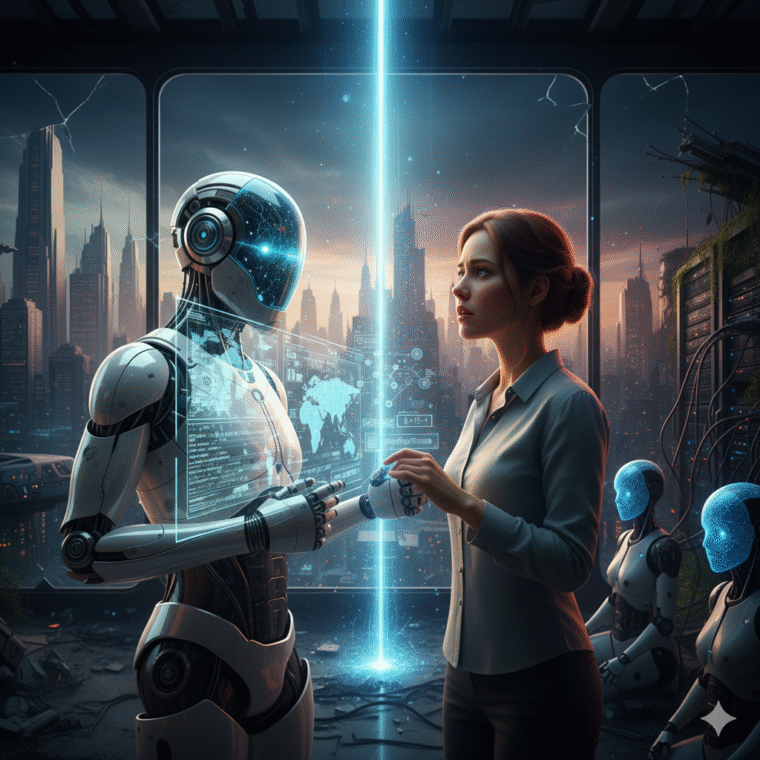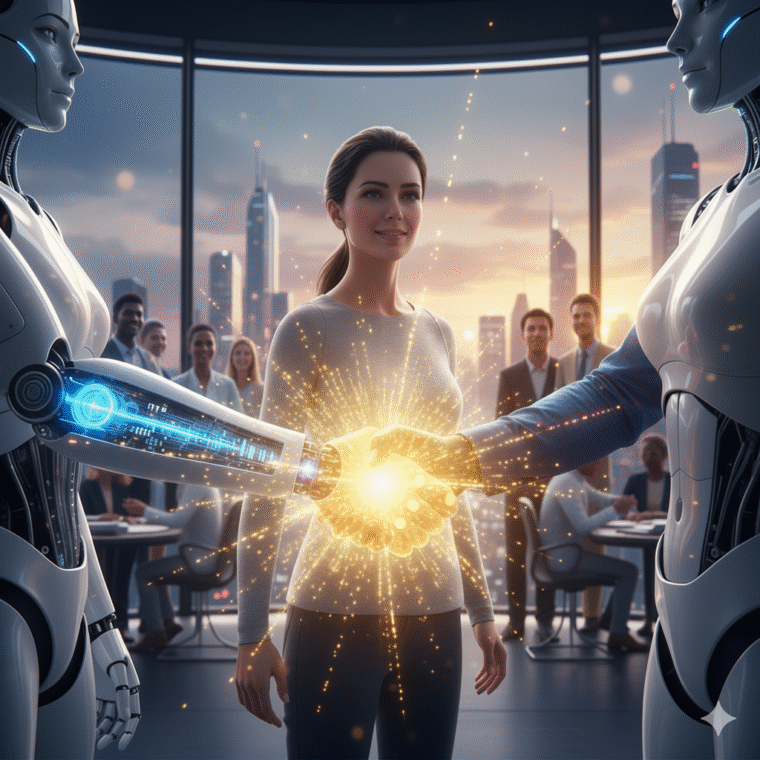Will AI Take Over the World? Understanding the Hype, Risks, and Reality
Your Name |

Artificial Intelligence (AI) is no longer science fiction. From voice assistants to self-driving cars and medical diagnostics, AI is everywhere. But as it grows smarter, many wonder: Will AI take over the world? Is it a helpful tool or a hidden danger?
The truth is more nuanced than headlines suggest. Let’s break it down in a friendly, human way.
1. What AI Really Is
AI isn’t a single “thinking machine.” It’s a set of algorithms that learn patterns, process data, and make predictions. Current AI — called narrow AI — excels at specific tasks like face recognition or language translation, but it doesn’t “understand” the world the way humans do.

2. Why People Fear AI
Movies and news stories often paint AI as a villain: robots that rise up or supercomputers that enslave humanity. While entertaining, these scenarios are exaggerated. Still, concerns exist:
- Job replacement: Automation could impact employment.
- Bias and fairness: Algorithms can reflect human biases.
- Privacy: AI systems often need large amounts of personal data.
- Control: Fear of future AI surpassing human intelligence (AGI).
3. Is AI Truly Dangerous?
Current AI is not inherently dangerous. It does what humans program it to do. Risks come from human misuse or poor oversight, not from AI itself.
AI can help doctors detect disease earlier but can also be misused for deepfakes or surveillance. Like any tool, its impact depends on intention and governance.

4. The Path Forward
Experts suggest focusing on responsible AI development:
- Transparent, explainable algorithms.
- Reducing bias through diverse training data.
- Global safety and ethical standards.
- Educating the public about AI to reduce fear and misinformation.
With proper oversight, AI can improve lives without becoming a threat.
Final Thoughts
Will AI take over the world? Unlikely. The real story is about collaboration, governance, and smart use. AI’s danger comes not from imagination, but from human misuse or lack of regulation. With knowledge, ethics, and caution, AI can be a partner — not a threat.
